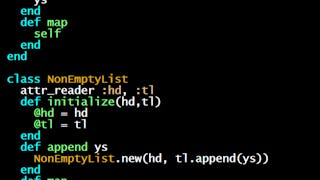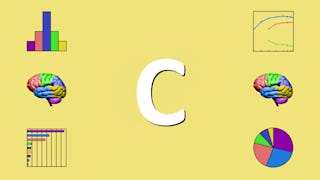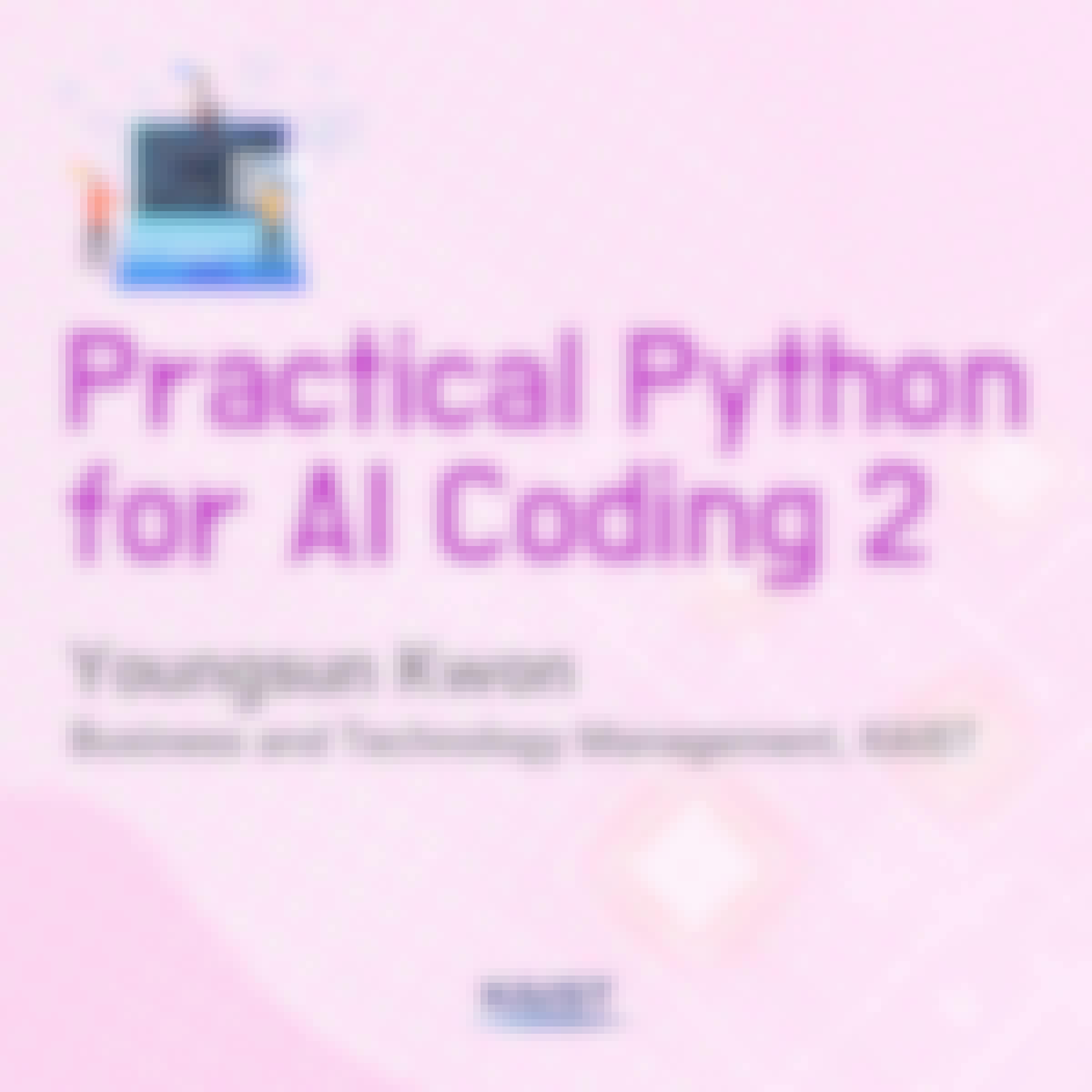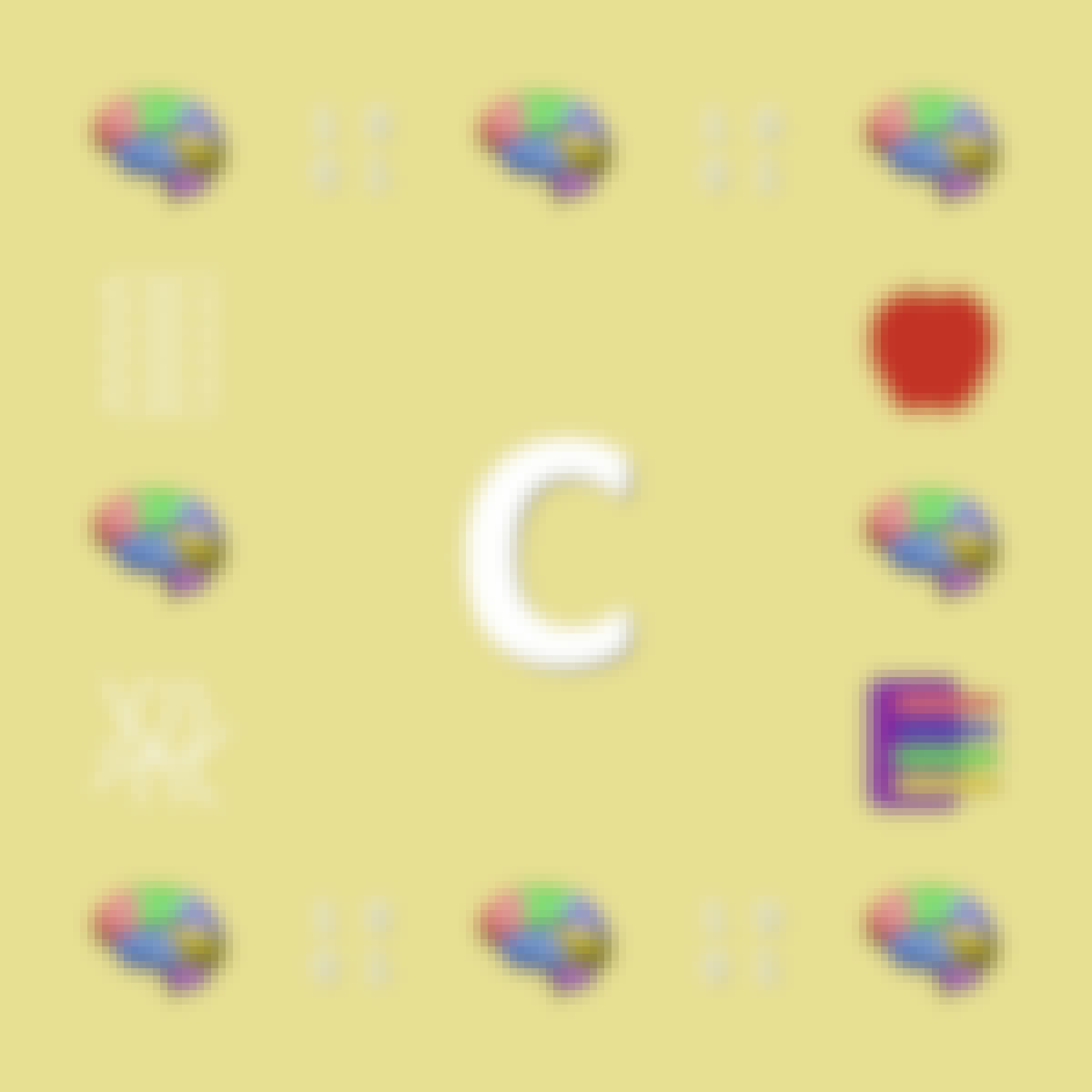Filter by
SubjectRequired
LanguageRequired
The language used throughout the course, in both instruction and assessments.
Learning ProductRequired
LevelRequired
DurationRequired
SkillsRequired
SubtitlesRequired
EducatorRequired
Results for "pseudocode"
 Status: Free
Status: FreeCoursera Instructor Network
Skills you'll gain: Algorithms, Technical Communication, Pseudocode, Computational Thinking, Solution Design, Programming Principles, Software Design, Theoretical Computer Science, Data Structures, Problem Management, Computer Science

Fractal Analytics
Skills you'll gain: Generative AI, Object Oriented Programming (OOP), Prompt Engineering, Artificial Neural Networks, Computer Programming, Programming Principles, Deep Learning, Debugging, Python Programming, Semantic Web, Natural Language Processing

University of Leeds
Skills you'll gain: Logical Reasoning, Deductive Reasoning, Computational Logic, Computational Thinking, Algorithms, Theoretical Computer Science, Artificial Intelligence
 Status: Free
Status: FreeUniversity of Washington
Skills you'll gain: Ruby (Programming Language), Object Oriented Programming (OOP), Scripting Languages, Computer Programming, Programming Principles, Functional Design, Computational Thinking, Software Design, Debugging

University of Colorado System
Skills you'll gain: Computational Thinking, Data Analysis, C (Programming Language), Statistical Analysis, Programming Principles, Data Structures, Descriptive Statistics

Dartmouth College
Skills you'll gain: C (Programming Language), Computer Architecture, Embedded Software, Computer Engineering, Computer Programming, Program Development, Data Structures, Linux, Debugging

Rice University
Skills you'll gain: Combinatorics, Probability, Programming Principles, Program Development, Computational Thinking, Computer Programming, Object Oriented Programming (OOP), Development Testing, Software Testing, Applied Mathematics, Debugging, Algorithms, Python Programming, Game Design, Simulations

Korea Advanced Institute of Science and Technology(KAIST)
Skills you'll gain: Matplotlib, Data Visualization, Tensorflow, NumPy, Pandas (Python Package), Object Oriented Programming (OOP), Seaborn, Python Programming, Keras (Neural Network Library), Artificial Intelligence, Scikit Learn (Machine Learning Library), Data Manipulation, Development Environment
 Status: New
Status: NewMicrosoft
Skills you'll gain: Graph Theory, Data Structures, Microsoft Copilot, .NET Framework, Algorithms, Back-End Web Development, C# (Programming Language), Performance Tuning, Programming Principles, Microsoft Development Tools, Scalability

University of Colorado System
Skills you'll gain: Computational Thinking, C (Programming Language), Data Structures, Programming Principles, Computer Programming, Problem Management, Program Development, Data Storage

University of Michigan
Skills you'll gain: C (Programming Language), Programming Principles, C++ (Programming Language), Algorithms, Data Structures, Other Programming Languages, System Programming, Numerical Analysis

Microsoft
Skills you'll gain: Front-End Web Development, Debugging, Programming Principles, Computational Thinking, GitHub, Pseudocode, Version Control, Git (Version Control System), Integrated Development Environments, Microsoft Copilot, Algorithms, Program Development, Computer Programming, Web Development, C# (Programming Language), Software Engineering, Data Structures
Searches related to pseudocode
In summary, here are 10 of our most popular pseudocode courses
- Algorithmic Solutions: Design, Problem Solving, Reporting: Coursera Instructor Network
- Coding with Generative AI: Fractal Analytics
- An Introduction to Logic for Computer Science: University of Leeds
- Programming Languages, Part C: University of Washington
- Data Analysis and Representation, Selection and Iteration: University of Colorado System
- C Programming: Modular Programming and Memory Management - 3: Dartmouth College
- Principles of Computing (Part 1): Rice University
- Practical Python for AI Coding 2: Korea Advanced Institute of Science and Technology(KAIST)
- Data Structures and Algorithms: Microsoft
- Abstraction, Problem Decomposition, and Functions: University of Colorado System










